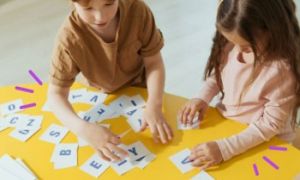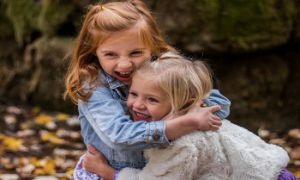

The Healing Foundation’s Stolen Generations Resource Kit for Educators and Children has been created to educate young people about the Stolen Generations. It makes it easy for the community to start the conversation and inform discussions using facts, real examples and stories.
Writing observations for babies and young children enables us to observe the countless opportunities for growth and development that take place. The following article provides information on Writing Observations For Babies, What To Observe, Sample Observation For A Baby, Methods For Documenting and more.
The Early Years Learning Framework outlines Intentional Teaching as one of the major practice guidelines to promote children’s learning. Intentional teaching involves actively planning and acting with specific goals or outcomes for children’s learning in mind. The following provides information on Intentional Teaching Definition, Intentional Teaching Strategies, Intentional Teaching Examples and Benefits Of Intentional Teaching.
Active Listening involves lending your undivided attention to someone who is speaking to you. As opposed to passive listening which is merely hearing the speaker without trying to understand what is being said, active listening leads to more effective communication, learning and problem-solving. The article provides information on What Active Listening Is, Active Listening Definition, Active Listening Skills Examples and more.
There may be times when despite giving your best, your service might have to face complaints. However, instead of getting demotivated, it is possible to use complaints as opportunities for critical reflection. The following article provides information on Complaints Management, Positive Approaches To Complaints, Effective Complaints Management systems, Identifying Areas Of Improvement, Effective Documentation and more.
As an Early Childhood Educator, it enables you to acknowledge and embrace conversations around disability and inclusion with children. The following article provides strategies to discuss inclusion and disability with children.
The Early Years Learning Framework identifies that positive attitudes and competencies in literacy and numeracy are important aspects
of communication and are vital for children’s successful learning. The indicators have been developed to support teachers to extend and enrich every preschool child’s numeracy and literacy learning. The following article provides information on What Are The Indicators, the Importance of The Indicators, Learning Processes, Numeracy and Literacy Indicators and more.
If your service is to ensure the best outcomes for children in your care, it is imperative that your educators and other staff work together as a team. One of the most enjoyable ways to foster team motivation is with games. Here are a few fun-filled team-building exercises to try at your next team-building session.
Motivating well-qualified staff to remain at your service is not only important to cut down training costs but also to provide the best outcomes for children. The following article provides strategies on how to retain staff within your early childhood service.
Mentoring is a hugely beneficial way for early childhood services to build the professional capacities of new educators as well as leadership capacities for their own organization. However, the success of a mentoring programme depends to a large extent on the efficacy of mentors. The following article provides strategies such as the Roles and Responsibilities, Who Can Be A Mentor and Requirements Of An Effective Mentor in an early childhood setting.
 As an Educator in Australia, your pay rate falls under the Children’s Services Award 2010. This award states the minimum amount that an employer can… Read More
As an Educator in Australia, your pay rate falls under the Children’s Services Award 2010. This award states the minimum amount that an employer can… Read More
 When working as a qualified Early Childhood Teacher (with a university degree) within a service, your rate of pay will come from the Educational Services… Read More
When working as a qualified Early Childhood Teacher (with a university degree) within a service, your rate of pay will come from the Educational Services… Read More
 When working as a Diploma Qualified Educator your pay rate is from the Children's Services Award 2010. This Award states your minimum rate of pay… Read More
When working as a Diploma Qualified Educator your pay rate is from the Children's Services Award 2010. This Award states your minimum rate of pay… Read More
 When working as a Cert 3 Qualified Educator, your pay rate is from the Children's Services Award 2010. This Award states your minimum rate of… Read More
When working as a Cert 3 Qualified Educator, your pay rate is from the Children's Services Award 2010. This Award states your minimum rate of… Read More
 Educational Leaders play a crucial role in their early childhood service by ensuring that the educational program aligns with best practices and supports the holistic… Read More
Educational Leaders play a crucial role in their early childhood service by ensuring that the educational program aligns with best practices and supports the holistic… Read More
 With the new national child safety reforms kicking in on 1 September 2025, early childhood services like yours have a real opportunity to lead the… Read More
With the new national child safety reforms kicking in on 1 September 2025, early childhood services like yours have a real opportunity to lead the… Read More
 In early childhood education and care, ratios are more than a technicality—they are a frontline safeguard. Every child deserves responsive supervision, emotional connection, and developmental… Read More
In early childhood education and care, ratios are more than a technicality—they are a frontline safeguard. Every child deserves responsive supervision, emotional connection, and developmental… Read More
 Here’s a comprehensive Mobile Phone and Smart Watch Policy tailored for early childhood education and care (ECEC) services in Australia, aligned with the latest 2025… Read More
Here’s a comprehensive Mobile Phone and Smart Watch Policy tailored for early childhood education and care (ECEC) services in Australia, aligned with the latest 2025… Read More
 The Sea of Fish Challenge is a national initiative that invites children, educators, families, and communities to create and display fish artworks as a symbol… Read More
The Sea of Fish Challenge is a national initiative that invites children, educators, families, and communities to create and display fish artworks as a symbol… Read More
 Cold weather play is incredibly beneficial for early childhood development! It helps children build resilience, strengthen their immune systems, and develop essential motor skills. Here’s… Read More
Cold weather play is incredibly beneficial for early childhood development! It helps children build resilience, strengthen their immune systems, and develop essential motor skills. Here’s… Read More

Quality Area 2 of the National Quality Standard focuses on Children’s Health and Safety, ensuring that...
See more...
At its simplest, communication is the process of sending and receiving information between two or...
See more...
On 30 July, we celebrate the International Day of Friendship (UN). It is a day...
See more...© 2009-2025 Aussie Childcare Network Pty Ltd. All Rights Reserved.

